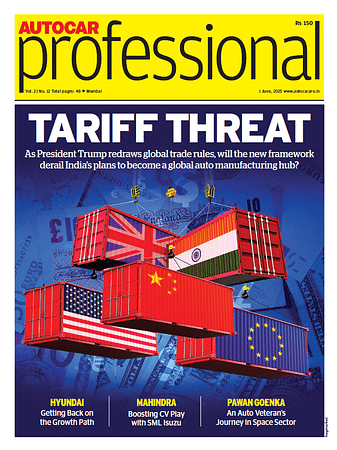Taxing Strong Hybrids Like Petrol and Diesel Vehicles Is Unfair: Maruti Suzuki’s Rahul Bharti
Bharti argued that SHEVs are significantly more efficient and environmentally friendly than petrol vehicles, offering fuel efficiency improvements in the range of 25% to 44%.
Maruti Suzuki has called for a rethink of India’s tax policy on strong hybrid vehicles, arguing that taxing them at 43%—around the same rate as petrol and diesel vehicles—is unfair, particularly when electric vehicles (EVs) benefit from a much lower 5% GST. Rahul Bharti, Executive Director, Corporate Affairs at Maruti Suzuki India, said strong hybrids, or Series Hybrid Electric Vehicles (SHEVs), offer a practical and cleaner alternative to conventional petrol vehicles and should be incentivized accordingly.
“We want to encourage more technologies, whether it’s BEVs or SHEVs,” Bharti said. “Today, BEV penetration is just 3%, despite our best efforts. Are we saying we will do nothing about the remaining 97%, no matter how polluting or energy-draining they are?”
Bharti argued that SHEVs are significantly more efficient and environmentally friendly than petrol vehicles, offering fuel efficiency improvements in the range of 25% to 44%. “The purpose of SHEVs is to clean up that 97%. So how can they be taxed the same as pure petrol vehicles?” he said.
Maruti Suzuki’s comments come amid a growing debate within India’s auto industry over the classification and treatment of hybrid vehicles. Leading Indian manufacturers, including Mahindra and Mahindra and Tata Motors, are opposing a recent recommendation by the Commission for Air Quality Management (CAQM) to include strong hybrids alongside EVs in government fleet procurement for Delhi and its surrounding regions, according to Reuters.
The companies have formally appealed to the Ministry of Heavy Industries, urging it to reverse the CAQM’s May 2 recommendation. The commission had designated strong hybrids as "cleaner vehicles," citing their potential to ease New Delhi’s severe air pollution crisis and reduce reliance on fossil fuels. However, electric vehicle makers argue that hybrids, despite offering better fuel economy, still rely on combustion engines and thus should not be equated with zero-emission battery EVs in policy or procurement decisions.
"Wherever we have been able to explain the (hybrid) technology and its net benefit in terms of fuel efficiency and emission reduction, all policymakers are quite positive on this aspect. I would understand not incentivizing hybrids if we had stopped selling pure diesel or pure petrol cars in the country. But as long as we have them, they deserve to be replaced by cleaner tech like strong hybrids,” Bharti said.
He added that there's a viability gap in hybrids, which is why they cannot be taxed the same as pure petrol and diesel vehicles. “We have to work on the economics of trying to make it viable, and we are struggling to make it viable. Plus, the whole world is using hybrids to de-risk EV growth,” he added.
RELATED ARTICLES
Passenger Vehicle Sales Face Headwinds in May as Inventory and Financing Issues Weigh on Market, Says FADA
Passenger vehicle sales in India dipped 3.1% YoY in May 2025 amid rising inventories, financing challenges, and geopolit...
Indian Auto Retail Market Shows Mixed Performance in May 2025
Two-wheelers surge 7.3% while passenger vehicles decline 3.1% amid rural demand strength and urban financing constraints...
“I’d Rather Fail Gloriously”: Inside Classic Legends’ Bold Second Attempt
Co-founder Anupam Thareja on rebooting product strategy, entering global markets, and why one great motorcycle could def...





 02 Jun 2025
02 Jun 2025
 2535 Views
2535 Views





 Autocar Professional Bureau
Autocar Professional Bureau


 Sarthak Mahajan
Sarthak Mahajan

 Darshan Nakhwa
Darshan Nakhwa

